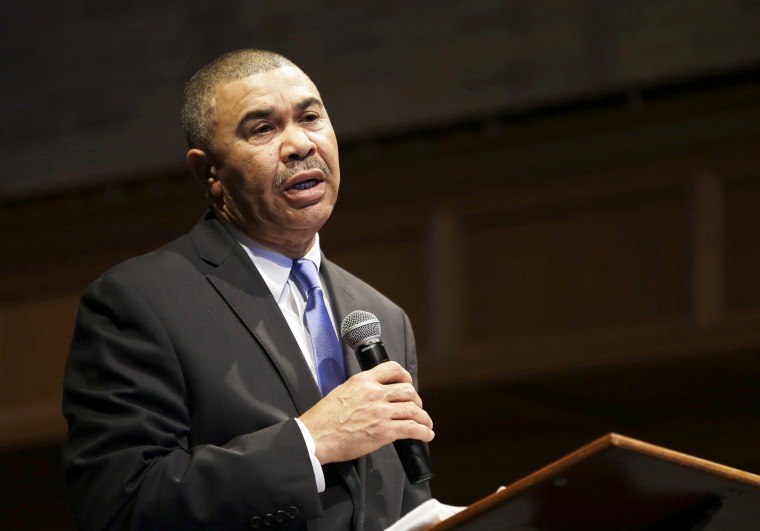WASHINGTON — Rep. Lacy Clay, D-Mo., may be more moderate than his district. His family could have represented parts of St. Louis for too long for some voters. The Democratic Party might be seeing a wave of enthusiasm for activist challengers like Cori Bush.
Those are all potential contributing factors in Clay's loss after 10 terms to Bush in a primary Tuesday night, and progressives who backed Bush will surely point to them as recruiting tools for future challengers to seemingly entrenched incumbents. But something more important appeared to be on the minds of voters.
Come January, the House won't have a member of the Clay family for the first time since 1969, in large part because Clay, the son of Congressional Black Caucus co-founder Bill Clay, spent too much time in the nation's capital and not enough in his district.
Clay didn't "go Washington"; he never really left it. As a result, he wasn't nearly as visible as Bush, who twice ran against him.
"Cori didn't stop running after last time, and despite the facts that she raised far more than in 2018 and a national climate of activism, the congressman representing the district where that very movement was birthed didn't seem to take the challenge seriously until mid-July," said Jeff Smith, a former state senator from the St. Louis area.
Bush proved again that the most effective line of attack against a veteran incumbent, particularly in a primary, is that he or she is absent from the district.
Joe Crowley of New York, then the chairman of the House Democratic Caucus, and Eric Cantor of Virginia, then the House Republican leader, lost primaries in 2018 and 2014, respectively, in large part because they focused so much of their energy on Washington. Crowley had moved his family from New York to the Virginia suburbs.
Earlier this year, an Atlantic magazine reporter who'd visited Rep. Eliot Engel's house in the Washington suburbs wrote that Engel, a veteran Democratic congressman, hadn't been back to his New York district in months. Engel was subsequently defeated by progressive challenger Jamaal Bowman.
While there are ideological divides within parties, and they certainly influence voters, there's nothing like portraying the incumbent as AWOL to lay the groundwork for an upset.
With former Vice President Joe Biden winning the Democratic presidential nomination convincingly over about two dozen demonstrably more progressive competitors, it's difficult to make a compelling case that the party's voters are particularly obsessed with an ideological purge right now. What makes far more sense is that they are more open to challengers — progressive or otherwise — when they doubt the incumbent's commitment to them.
Clay, the son of a congressman, graduated from Springbrook High School in Silver Spring, a Maryland suburb outside Washington, and the University of Maryland. He worked in the Capitol as an assistant doorkeeper for the House as a young man. After nearly two decades in the Missouri Legislature, he came back to Washington to take his father's seat in the House; it would be fair to say that the nation's capital was more of a home for him than a home away from home.
Download the NBC News app for breaking news and politics
That wasn't much of an issue until Clay's district became a national focal point for protests against police-involved killings of Black people. Ferguson, Missouri, where Michael Brown was shot and killed by a police officer in August 2014, erupted in combustible confrontations between demonstrators and police that summer. For the most part, Clay wasn't there.
Bush, a leader in the protest movement, attacked Clay for his absence. It took two cycles for the message to hit home with primary voters in their district, but it had been cemented by Tuesday night. Her evidence was perhaps the most poignant example in recent memory of a challenger accusing an incumbent of being out of touch — not just figuratively, but literally — with his constituents. And it became the ultimate symbol for every other issue on which she wanted to say Clay wasn't serving them.
"He's had 20 years to make a change, not only in St. Louis but across this country," Bush said in the run-up to the primary, according to The New York Times. "He waits until something is popular to stand up for it, or he waits until there is pressure. I do it just because that is the need."
Clay didn't immediately respond to an email seeking comment.

